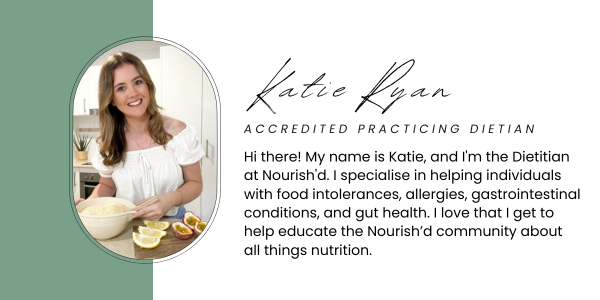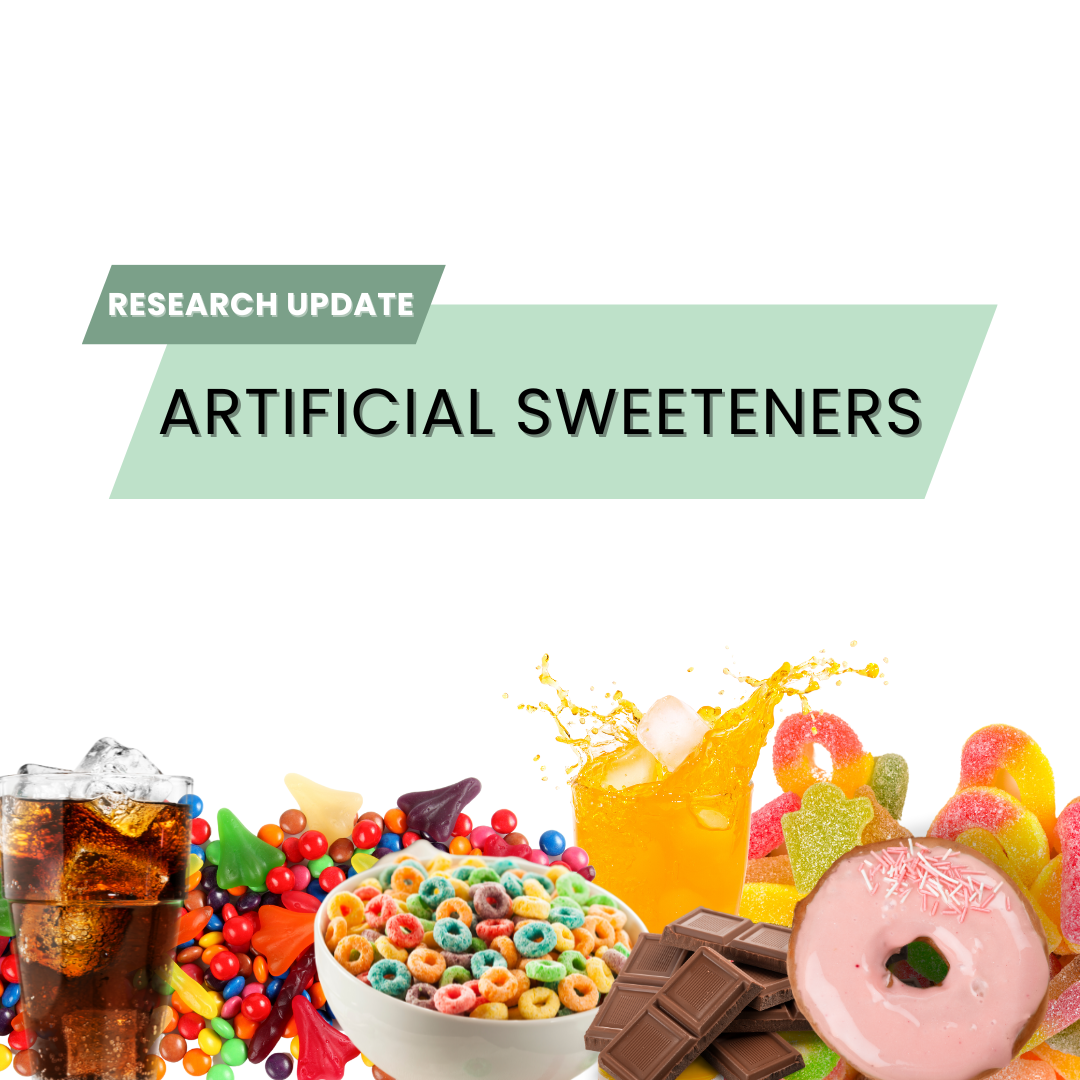Artificial sweeteners were first introduced into the food industry as a means to reduce overall sugar and calorie intake within the population. Classified as a food additive, artificial sweeteners contain zero sugar and zero calories, while still making food taste sweet. However in recent years, researchers, the media, and the general population have started to question whether artificial sweeteners pose a risk to our health. In this blog article we’ll dive into the common artificial sweeteners used in Australia, common foods that artificial sweeteners are added to, and what the current research is saying about artificial sweeteners and our health. Please note, in this blog we will only be discussing the current research to date, and not ours or others opinions on artificial sweeteners.
In Australia, artificial sweeteners are regulated by Food Standards Australia and New Zealand (FSANZ). FSANZ regularly reviews the current research on artificial sweeteners and sets acceptable daily intakes (ADI) for all artificial sweeteners approved for use in Australia to ensure no harmful effects. The Cancer Council supports FSANZ recommendation on artificial sweeteners, but does not encourage a high consumption of discretionary (AKA junk) food products that contain artificial sweeteners, as these foods do not contribute to good nutrition.
Common Artificial Sweeteners you may see on food packages in Australia include:
-
Aspartame (951)
-
Sucralose (955)
-
Saccharin (954)
-
Acesulphame K (950)
-
Cyclamate (952)
-
Neotame (961)
Foods that artificial sweeteners are usually added to include:
-
Softdrinks
-
Fruit drinks / Cordials
-
Confectionary
-
Cereals
-
Desserts
-
Chewing Gum
Recent studies of NOT high quality state that a high intake of artificial sweeteners can increase your risk of:
-
Cancers
-
Insulin resistance
-
Cardiovascular diseases
-
Metabolic Syndrome
-
Type 2 Diabetes
As we’ve noted above, current studies investigating an association between artificial sweeteners and health are not of high quality. Therefore, we currently cannot definitively say artificial sweeteners cause these particular health conditions and diseases. Further higher quality research is still needed and the mechanisms on how artificial sweeteners contribute negatively to these health conditions needs to be determined. Nutrition research is forever evolving, so you never know what we may know in another 5-10 years!
At Nourish’d we’re proud to provide 100% preservative and additive free meals to Australians. Explore our range of meals here.



